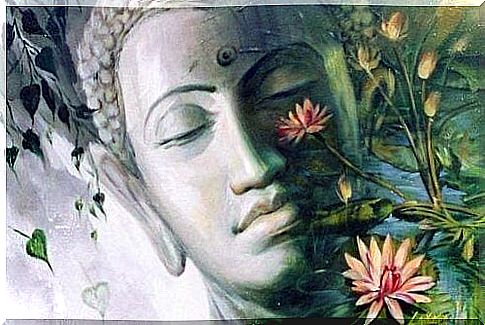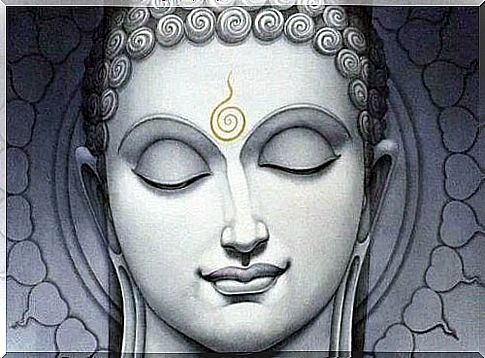4 Teachings Of Buddhism On Love
Buddhism teaches us to love each other from a spiritual perspective. The more we recognize her as part of our being and encourage her well-being and freedom, the more we will help her grow internally.

The conception of love that Buddhism offers us is very different from the classic image of romantic love, which the world of literature and the cinema have transmitted to us: wrong and painful concepts.
Whether we are spiritual, religious, agnostic, or a bit of everything depending on the moment, it is always good to know several approaches to the same reality, to enrich us personally.
Love follows and will follow a dimension as complex as it is fascinating.
It’s something we learn every day. It is also interesting to learn about theories that allow us to grow from within and establish happier, more honest relationships.
Buddhism can help us. We will therefore share with you its magical and learned concepts which make you think.
Love of Buddhism
In Buddhist texts and in the various branches of this ancient religion, love is above all a part of inner development, both of the person and of the spouse.
It is also interesting to know that for Buddha love is a subtle and wonderful mixture of joy and compassion.
However, we have to know that in this spiritual approach, we privilege the fact of not being “attached” to something or to someone.
“Detachment” is part of this essential freedom of the human soul. It allows him to flow and move forward in the wheel of life and in each of the cycles of his soul.
By detachment, we don’t mean not being able to be united with our loved ones.
For Buddhism, to love is to recognize the other as a part of ourselves. But we must be wise enough to allow the personal development of the loved one as well.
It is here that one reaches one of the greatest beauties of this approach.
Let’s see all of this in detail.
1. Unconditional kindness
Buddhism reminds us that one of the main pillars that we need to build and heal in our life is kindness.
- The act of being noble in mind and heart involves doing the best for others, while respecting and listening to all around us.
- It cannot be otherwise in love. Indeed, in the couple, it is unconditional kindness that must prevail, in its maximum expression.
- The fact of being respectful with the loved one, of worrying about his well-being, of his personal balance, of acting with nobility in our actions and our words is a value that we must not neglect.

2. The ability to give joy and happiness to the person you love
Love, if genuine, mature, and wise, will never bring weight or tears. Whoever loves you will make you happy and never make you cry.
- Buddha reminds us in his texts that to love someone, you have to know how to observe them to discover what makes them happy.
- Understanding is the path where two people find common spaces. And to facilitate this mutual understanding, we must be able to enjoy together, to speak with joy, to look at each other in silence and to observe each other, to also delve into the concerns of our soul.
- Happiness is expressed and observed, love is offered with joy, never with cries or blackmail.
- Likewise, Buddhism reminds us, once again, of the need to be happy alone before starting a relationship. Because only happy and peaceful hearts are able to give the best of themselves.
3. Compassion
We understand compassion as that sincere and noble desire to relieve the suffering of the other, especially of the loved one.
- Buddhism reminds us that to find the reason for human suffering, it is not enough to speak. Words are not always sincere or courageous.
- You have to know how to observe, you have to develop this empathy that connects looks to read the soul. As you can imagine, this spiritual tendency invites us to learn to meditate.
Because it is only when we find this balance and this inner peace that we are able to better connect with people.
4. Ecumenism and freedom in the couple
It is an aspect as important as it is complex in the relationship of a couple.
If I love a person, how am I going to promote their own freedom? How to build this space where the two can be united but where one is free to flourish?
- It is necessary to relativize many of our diagrams. To begin with, true love must be offered in total freedom.
“I love you because I love myself, because I feel free to love you and thus promote your development, in addition to mine”.
Personal freedom is, as we said, an exceptional value which, even if it seems difficult to us to put into practice, can help us to consolidate the most lasting relationships.
It is necessary to promote a common space in our relationship but also to respect the other person so that they continue to grow internally.
It is a journey that we are taking together, hand in hand, but free.









